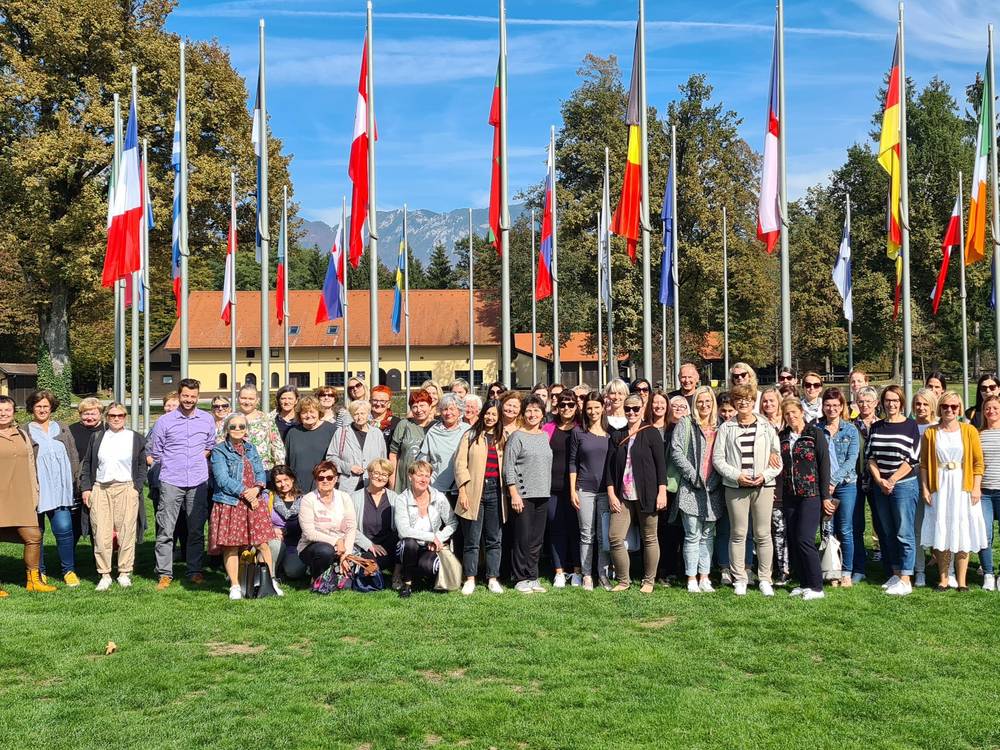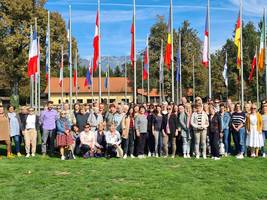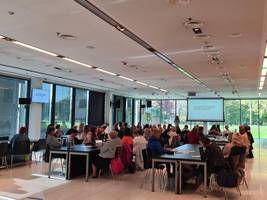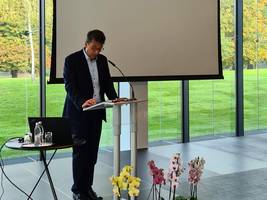The Human Rights Ombudsman of the Republic of Slovenia organised a two-day consultation at which child advocates, and everyone involved in the expert implementation of child advocacy, discussed the channels and methods of taking action in cases of violence against children who enter the advocacy procedure. The consultation took place between 7 and 8 October 2022 at Brdo pri Kranju. A new generation of advocates who were educated during the pandemic also attended.
The organisation of the consultation, the result of which in addition to the newly obtained knowledge was also the Protocol for dealing with perceived violence during advocacy, was brought about by the growing number of cases of detected violence dealt with by the advocates. With an increased number of such cases, numerous dilemmas and issue also arose, including a need to harmonise various practices and define in detail the tasks of persons involved in the advocacy.
On the first day, the participants focused on the issues of how to treat violence against children, respond to a child’s testimony concerning violence, and clearly define the powers and tasks of individual services and the advocate’s role in these procedures. On the second day, they learned about the possibilities for cooperation with the public institution, Children's House, which opened this year and introduced a different aspect to dealing with children who are victims of criminal offences. The participants also learned about the experience of advocates and coordinators in cases involving the elements of violence and were practically trained to respond in such cases. At the end of the consultation, they determined the Protocol for dealing with perceived violence during advocacy. "Clear rules on the conduct in a situation of violence against a child who is involved in advocacy provide security that is crucial when dealing with exceptionally complex advocacy cases. It is mandatory for an advocate to be equipped with knowledge and experience so that they are able to guide a child involved in such a situation to form a statement, which is an important element in decision-making about their future," Human Rights Ombudsman Peter Svetina highlighted in his address.
In the field of child advocacy, a significant increase in complaints has been detected during the pandemic. A new generation of advocates, who were educated during the uncertain times of the pandemic, also attended the consultation and began their work immediately, as they were equipped with the new publication, Izzivi in perspektiva zagovorništva otrok v Sloveniji (Challenges and Perspective of Child Advocacy in Slovenia), published by the Ombudsman’s Office in 2021. "The majority of 65 advocates in the network are working with full capacity, which shows that many sad stories rose to the surface during the pandemic. The service is becoming recognised and assessed as beneficial for children," the Ombudsman highlighted. The number of cases in which an advocate is appointed increased drastically; while there were 107 requests to appoint an advocate in 2021, there have already been 106 by this October. An advocate was appointed to 101 children in 2021 and 105 children by this October. In all the years of the institution’s operations, advocates have been appointed to more than 1,000 children and the trend is not decreasing.
"This consultation coincides with the Week of the Child®, which is taking place this year under the slogan, Skupaj se imamo dobro, (Together, we have good time). Childhood should be safe and filled with closeness, socialising, adventures and ease, but unfortunately too many children encounter dysfunctionality in their families at an early age when they are not yet equipped with the knowledge and skills to cope with it. The role of the advocates is thus particularly important in children’s distress," Ombudsman Svetina emphasised when addressing the attendees. He commended the advocates and coordinators who approach their work as a mission and voluntarily help children to recognise their wishes and needs and protect their integrity in procedures. "A child with an advocate by their side is no longer weak or unlettered. So, I thank you for all your work on my behalf and on the behalf of the institution of the Human Rights Ombudsman," the Ombudsman added.



